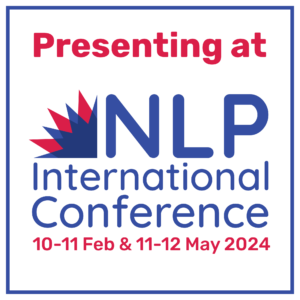Lockdown 2: How to Look After Your Mental Health

With lockdown measures starting again across the world, I wanted to write a blog on how to mentally ‘weather the storm’.
I have revisited a mix of ideas from Stoicism (an ancient Greek and Roman philosophy), Transactional Analysis (a more modern psychology stating we have an inner parent, adult and child), meditation and NLP.
Lockdown: Is there a right way to do it?
Practically, a lockdown provides time to start healthy routines around exercise, meditation, education, self-care and reaching out to stay connected to people. This requires discipline, but when done in the right way, also creates a sustainable way to endure lockdown.
But what is the ‘right way’? If this sounds entirely unrealistic – does it sound like a choice between indulgence or discipline – comfort eat in front of the telly or do endless press-ups?
‘Feed’ your inner child
From a Transactional Analysis perspective, this can sound like an inner parent making unrealistic demands which an inner child will rebel against. Remember, the inner child needs to be kept on board, as it will become sullen and refuse to cooperate, leading to the entire system slowing down or even stopping.
My advice is to ‘feed’ your inner child and accept it exists. Deliberately doing fun things and allowing yourself (restrained) treats is important – also allow yourself to mess up and overdo it from time to time without beating yourself up about it.
If your inner parent is lambasting you for this behaviour, allow your inner adult to take charge and find balance. Eric Berne, the founder of Transactional Analysis said that ‘Depression is the breakdown of communication between the parent and the child.’ That is why it is essential that the adult mediates any potential inner-war that can take place during times of high stress.
This also means that it is natural and normal for the inner child to feel sad about isolation and confinement.
Accepting ‘difficult’ feelings
Allowing yourself to accept difficult feelings is also a powerful tip; so often it is the fear of experiencing these feelings that can lead to even worse feelings of panic and desperation. This is where meditation can be so useful – by focusing on how you feel right now, without trying to change those feelings (but without intentionally magnifying them) the feelings actually begin to settle. It is as if you are ‘listening’ and acknowledging the feelings of your inner child: so often pain is caused by denying the feelings or trying to push them away (we have a free mediation app to help with this – click here to try it out for yourself).
The famous Stoic, Epictetus said, ‘focusing on things you have no control over is futile and a waste of energy’. This links into the parent idea of control and the adult idea of influence. If you focus on things you can influence (generally things you can do yourself, rather than the behaviour of other people) then you will find a way to consistently feel better. Using your adult to consistently do daily practices which are positive for your well-being is something you can influence. At the same time, be kind to yourself and enjoy some well-deserved treats or fun.
Learn to be at peace during challenging times
It is unrealistic to expect to be happy all of the time – that is not what I am advocating. However, by adjusting our attitudes and expectations we can at least learn to be at relative peace during challenging times: we can learn to be at peace with not being at peace.
The greatest gift we can give ourselves during lockdown is doing what is necessary to maintain a relatively balanced state for much of our day-to-day life. We can also implicitly teach those we care for to do similar, as they are likely to be influenced by our own behaviour. I hope you have found something useful in this blog during these challenging times.
Did you like this post?
Then check out our events and courses!
Register for Advanced Coaching – Processes for Personal and Professional Transformation 3 Day Course
Sign up to our new e-learning!
Where to find us
For posts, events, free open days and more, follow NLP School on:
Where to find Robbie
Twitter: @RSteinhouse
LinkedIn: Robbie Steinhouse
What to read next
Leading Yourself Through Uncertainty









